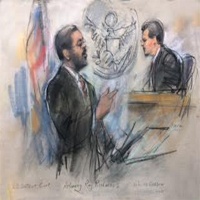Wayne Criminal Lawyer, Michigan
Sponsored Law Firm
-
 x
x

Click For More Info:
-
Richards & Associates, PLLC
200 East Big Beaver Road Troy, MI 48083» view mapCriminal Defense Accomplished Criminal Defense Attorney
If you face criminal charges, you deserve an experienced defense lawyer who has a reputation for winning the tough cases.
800-844-5250
Darin Kurt Weinberg
Divorce & Family Law, Criminal, Bankruptcy, Accident & Injury
Status: In Good Standing
FREE CONSULTATION
CONTACTBrendon Keith Debolski
Criminal, DUI-DWI, Traffic, Felony
Status: In Good Standing Licensed: 17 Years
FREE CONSULTATION
CONTACTMurray A. Duncan
Family Law, Divorce & Family Law, Criminal, Bankruptcy & Debt
Status: In Good Standing Licensed: 40 Years
William Maze
Traffic, Domestic Violence & Neglect, White Collar Crime, DUI-DWI
Status: In Good Standing
Brian F. Abramson
Estate, Family Law, Divorce & Family Law, Criminal
Status: In Good Standing Licensed: 28 Years
Katherine L. Zopf
Wills & Probate, Divorce & Family Law, Criminal
Status: In Good Standing Licensed: 21 Years
Sandra A. Ference Cicirelli
Family Law, Consumer Bankruptcy, Criminal
Status: In Good Standing Licensed: 39 Years
Steven C. Bullock
Family Law, Divorce, Juvenile Law, Criminal
Status: In Good Standing Licensed: 39 Years
Mona M. Fadlallah
Family Law, Divorce & Family Law, Criminal
Status: In Good Standing Licensed: 22 Years
 Ray Richards Troy, MI
Ray Richards Troy, MI AboutRichards & Associates, PLLC
AboutRichards & Associates, PLLC Practice AreasSpecializations
Practice AreasSpecializations
